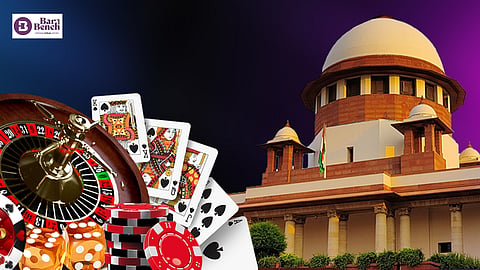The Supreme Court on Monday allowed a petition filed by Central government seeking transfer of the petitions challenging the constitutional validity of the Promotion and Regulation of Online Gaming Act, 2025 pending before different High Courts [Union of India Vs Head Digita].

